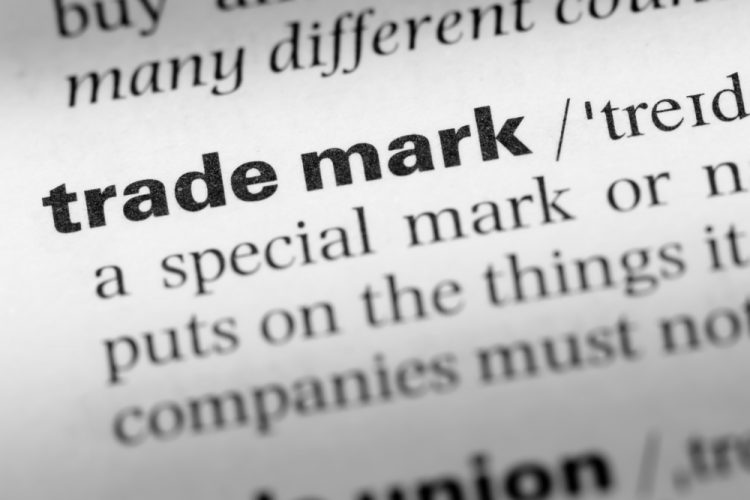How To Use The Word ‘Trade Mark’ Properly

Did you know that there’s no such thing as ‘trademarking’?
That’s because a trade mark isn’t a verb. Nor is it an adjective. It’s a noun.
Now this may just seem like semantics and there are plenty of people out there who say that correct grammar is pedantic and it doesn’t matter how we say things anymore. After all, texts and emails have reshaped our use (or non-use) of grammar and spelling in many ways, so is it actually important to use the word ‘trade mark’ properly?
Well, semantics matter when it comes to the law and words are central to the legal process.
And when it comes to protecting one of your most valuable commercial assets – your brand – it’s vital to get absolutely everything right. And very simply, ‘trade mark’ is not a verb and should not be used as a verb in a legal context.
That’s why we recommend speaking to an experienced trade marks attorney if you have any questions at all about protecting your assets and by extension, protecting your bottom-line and your business’s future. If you’re a business owner and want clarity on registering your business name or brand name as a trade mark, you’ll find this article on what does registering your business as a trade mark mean useful.
But let’s go back to the word ‘trade mark’, what it is and how to use the word as it was intended.
What Is a Trade Mark?
A trade mark is a distinctive sign that distinguishes one traders’ product or service in the market over a similar product or service. Most businesses therefore have at least one trade mark given this definition. A registered trade mark can help a brand stand out from the competition and serves as a symbol of integrity. A registered trade mark can also provide assurance to the purchasing public of the consistent quality of the products or services which are being promoted under the trade mark.
Various different things can be protected with a registered trade mark including a letter, word, phrase, number (or combination of these), a picture, aspect of packaging, a logo, a movement, a sound and a smell.
A registered trade mark provides the trade mark owner with legal rights to take action against another person for trade mark infringement where appropriate. Trade mark registration also protects a business against inadvertently infringing on another registered trade mark’s rights.
Using the Word ‘Trade Mark’ Correctly
As mentioned earlier, our trade marks attorneys at MMW Trademark Services strongly recommend that you should never use your registered trade mark as a verb. You may well ask why?
Looking at the above definition, a trade mark is clearly a ‘thing’ that is used, rather than something you ‘do’. A verb doesn’t identify the source of the product or service. Therefore, rather than “I am trade marking my name” it would be correct to see “I have applied to register my trade mark”.
Be Careful How You Use Your Own Trade Mark in the Course of Trade
Using your own trade mark as a verb can lead to it becoming generic. This means that if you use your trade mark as a verb and allow or enable others to do so as well, over time it can become a generally accepted term for the product or service that you sell. This is often referred to as ‘genericide’ – in other words, a trade mark loses its distinctiveness.
For example, these days a lot of consumers use Google as a verb – e.g. “I googled XXX”. However, this is incorrect use and can be problematic for owners of such trade marks over time. A correct reference is that “I used the Google® search engine”.
If ‘genericide’ happens, the trade mark is at real risk of being seen as no longer functioning as a trade mark or ‘badge or trade origin’ and the law will not be able to protect it. Your valuable asset could lose all the attributes and protections that you originally set it up to have through trade mark registration. In the 1950s the owners of the trade mark Escalator lost their protection as the term had become widely used by other manufacturers of moving staircases and therefore the term had become descriptive/generic, rather than distinctive to one trader’s goods over another’s.
The onus is on you, the trade mark owner, to use your trade mark correctly and not to use it – or allow it to be used – as a verb.
In Conclusion
Our team regularly gets calls from business owners requesting help with ‘trademarking’ or asking us to trade mark their product. Although a trade mark is not a product and it shouldn’t be used as a verb, we know what people mean and we are always happy to help in any way we can. That said, we also know how important it is to use the word ‘trade mark’ properly and for trade mark owners to use the word as it was intended, because the law is about semantics and that the proper use of words really does matter.
You’re welcome to talk to our friendly and professional trade marks attorneys at MMW Trademark Services about anything related to trade marks, and you can trust us to use the right words to give your valuable assets the watertight legal protection they deserve.

